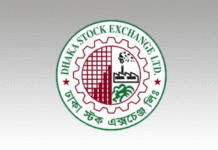‘B’desh business leaders need to be engaged with African counterparts’
Representatives of the American Bangladeshi diaspora on Monday stressed that Bangladeshi businesses must scale up the lobbying of US congressmen to ensure trade benefits for the country.
They came up with the observations at a views-exchange meeting between the Federation of Bangladesh Chambers of Commerce and Industry (FBCCI) leaders and a 30-member US business delegation visiting the country, organised by FBCCI at its headquarters.
Speaking on the occasion, US Bangladesh Advisory Council chairman Sabbir Ahmed Chowdhury, also a member of the visiting US delegation, said issues like GSP and other trade facilities in the US market are mainly dealt and decided by the US Congress, not by the US President or other government staff.
The businesses of Bangladesh must take notice of this factor and focus on increasing their capacity to lobby the Congressmen to win favour in the US market, he said.
He suggested the country’s apex trade body FBCCI to constitute a high-powered business team, consisting of representatives of the readymade garment (RMG) sector for lobbying the US Congressmen to secure GSP (Generalized System of Preferences) and other business facilities.
He said Bangladesh can create goodwill ambassadors from the American Bangladeshi diaspora and form a team of the diaspora to convince US congressmen for getting GSP and other business facilities from the US.
Chowdhury also recommended that the country’s business bodies must also approach the businesses of other competing countries, particularly the African ones, in the US market in order to restrain their lobbying against the facilitation of Bangladeshi trade at the US Congress.
“Bangladesh business leaders need to be engaged with African businessmen who have been raising their voices against the facilities of duty-free access or GSP to Bangladesh,” he added.
The Congressional Black Caucus is very active and influential, and they always take the stand against any bill placed to benefit Bangladeshi products in the US market, he noted.
Chowdhury added that the Congressional Bangladesh Caucus has in recent times lobbied for placing in the Congress three bills designed to win favour for Bangladesh, but the bills failed to move to the Senate due to the strong lobbying by the African Caucus against allowing the benefits to Bangladesh.
The business leaders of Bangladesh must send some delegations to exchange views with their African counterparts and convey the message that no competition exists between the countries as such, he added.
Jahangir Dewan, a member of the delegation, said Bangladesh has huge business potentials and the nation should take all the possible measures like development of necessary infrastructure to bring foreign investors.
He noted that there is a great potential for expanding the IT (information technology) sector in the country. “Bangladesh produces nearly 10,000 engineers per year. So, the country can have a plan to make proper use of the professionals,” he added.
FBCCI president Kazi Akram Uddin Ahmed urged the US investors, particularly the American Bangladeshi diaspora, to come forward with more investment in coming days.
He said, “We require more foreign direct investment. The government adopted an open door policy only to create competitive atmosphere for investment. So, the US investors can take the opportunity.”
He also noted the factor that the US remains a critical market for Bangladesh’s export as the export stood at US$ 5.1 billion in the fiscal 2011-2012.
Akram added that the implications of restrictive measure on Bangladeshi exports will be detrimental in terms of employment, women empowerment, economic and industrial development.
The views-exchange meeting was conducted by FBCCI president Kazi Akram Uddin Ahmed.
Source: UNBConnect










